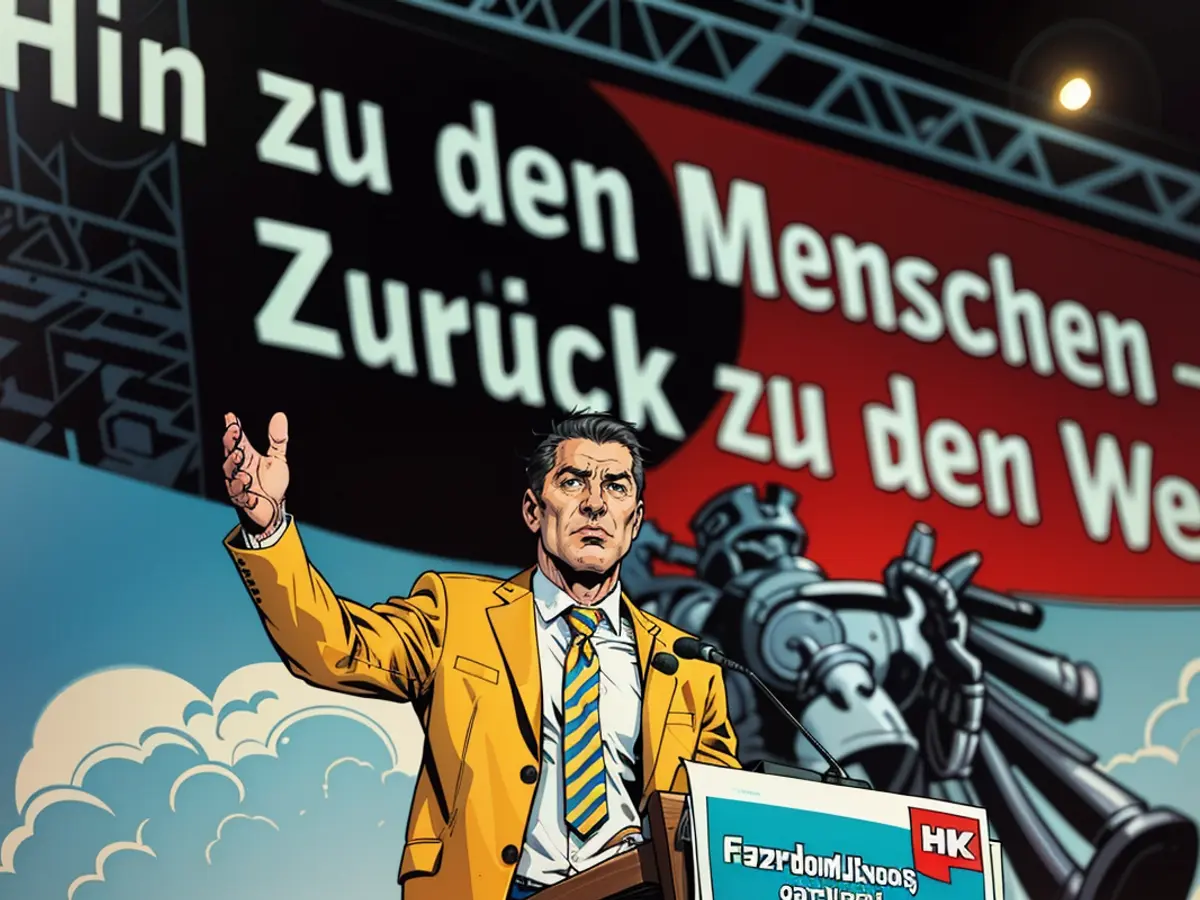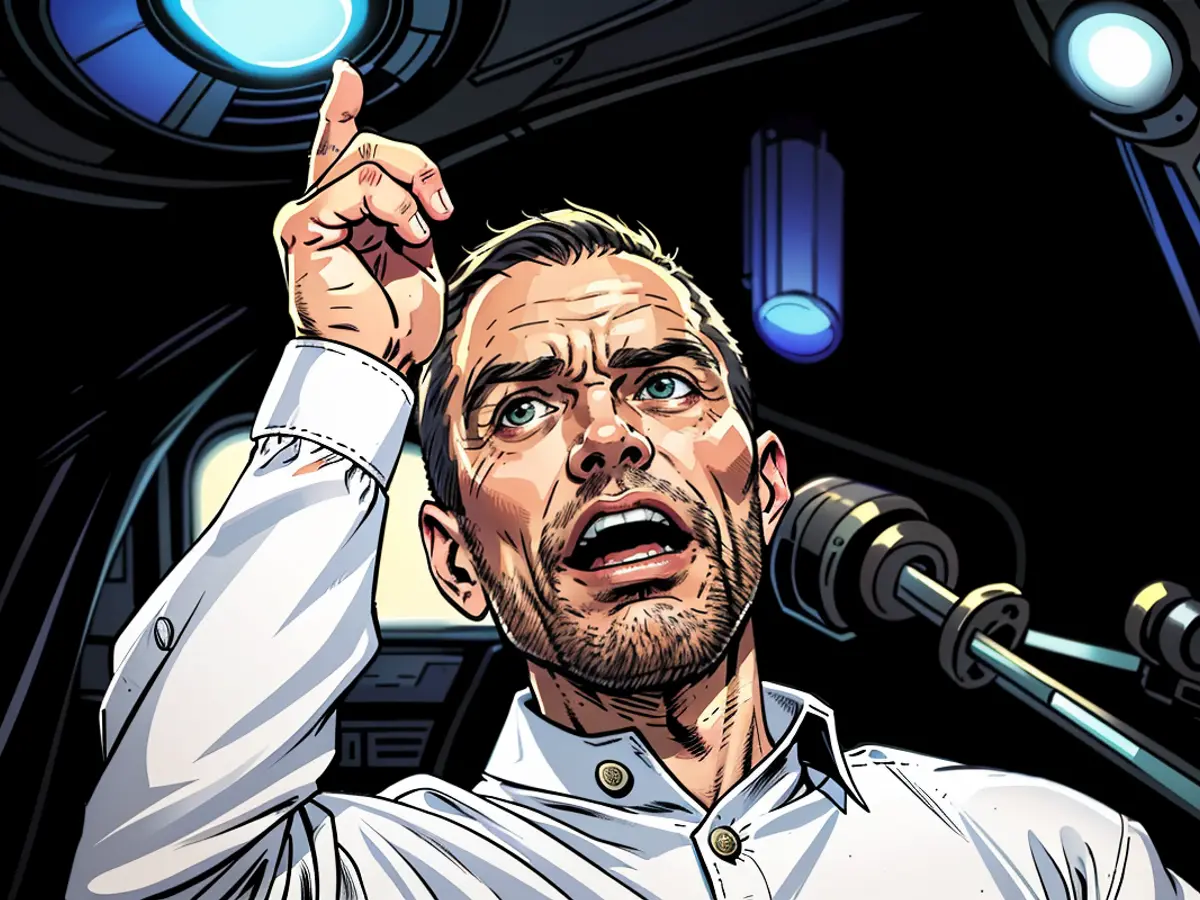Austria's right-wing extremists hold the lead in this Sunday's voting. What propelled their advancement?
Unlike most of its contemporaries, however, the FPO doesn't emerge as a newcomer and has a history of being included in coalition governments.
With the latest polls suggesting it might not secure a clear majority, the FPO would need backing from other parties – who could instead team up to prevent its rise to power. Here's what you need to know.
Who are the FPO?
The FPO is often labeled as the pioneer of European far-right parties and champions an anti-immigration, anti-Islam, Eurosceptic, and anti-vaccination stance. One of their common slogans previously read "homeland loyalty instead of Moroccan thieves."
According to Benjamin Biard, a political scientist and research fellow at Brussels-based think tank Centre de Recherche et d’Information Socio-Politiques (CRISP), the FPO "shares many similarities" with other prominent European far-right parties, such as France's National Rally (RN), the Flemish Vlaams Belang (VB), the Italian Lega, and the Dutch Party for Freedom (PVV).
However, Biard highlights a significant distinction. In contrast to Germany's far-right Alternative for Germany (AfD), which formed in 2013 as a response to Eurozone policies, the FPO was established in the 1950s after the Nazi era and boasts strong roots in Austrian politics. It has held power at a federal level three times, in coalition with other groups, making it one of only a few far-right parties in Europe to have managed this.
On June 9, the party clinched the European Parliament (EP) elections in Austria for the first time, capturing 25.5% of the vote and eager to translate this success to the national level.
London-based historian Nikolaus Wasmeier tells CNN that after its foundation in 1956 by ex-Nazis, the FPO has evaded any direct links to Nazism. Nevertheless, it has traversed a controversial path, veering from the far right to the center and back again.
“In its early years, the FPO advocated Pan-Germanist ideas and aimed to pave the way for the return of National Socialism in Austria,” Biard said. “At the time, it was mostly composed of Nazi sympathizers, pro-German nationalists, and libertarians.”
Pan-Germanism was a political movement striving to unify anyone speaking German or a Germanic language in the 19th century.
The liberal stance of the FPO gradually overtook its former position by the early 1980s, and it was then recognized as a legitimate competitor in the Austrian electoral landscape. Its political stance shifted once more when Jörg Haider became the leader of the party in 1986. Haider, the son of former Nazi party members, imported a populist style and centered the party's program around social nationalism and economic liberalism.
Haider's populist approach and rightward shift drew massive support, and the party won 27% of the vote in the October 1999 elections. Following its entry into a coalition government with the Austrian People’s Party (ÖVP), Haider himself stayed out of the administration. However, his ascent and the presence of the FPO in Austrian government alarmed the EU, leaving it diplomatically isolated.

In recent years, the party has been embroiled in various scandals, notably in 2019 during its second coalition government with the ÖVP. Dubbed "Ibiza-gate," then-leader Heinz-Christian Strache was caught on camera promising government contracts to a woman posing as the niece of a Russian oligarch – resulting in his resignation and the collapse of the coalition.
Since 2021, the FPO has been led by Herbert Kickl. Kickl, a far-right ideologue, has pledged to transform Austria into a "fortress" if he wins power and describes himself as the future "Volkskanzler," or "the people's chancellor," a term which draws criticism due to the FPO's Nazi past.
What are the FPO's main policies?
Central issues for the September 29 elections consist of the cost of living, immigration, climate change, and the war in Ukraine. Austria has grappled with high levels of inflation and below-average growth for almost two years, along with pressure from European allies to lessen its reliance on Russian gas.
A failed August terror attempt to assault a Taylor Swift concert in Vienna sparked debate around internal security, while widespread flooding this month, which took five lives and left Lower Austria declared a disaster zone, elevated climate change on the agenda.
The FPO has effectively tapped into some of these voter concerns. In its campaign manifesto, the party proposes stricter immigration rules and what it terms "remigration" – the repatriation of individuals back to their countries of origin, particularly criminals.
Positioning itself as a party representing the working class and appealing to low-income earners who feel marginalized, the FPO has also outlined measures to boost the economy, such as tax advantages for young workers and lower savings taxes.
The party, which is historically anti-EU and has reportedly close ties to Russia, opposes EU sanctions against Russia as well as further aid to Ukraine, maintaining that Austria should remain impartial. Unlike its rivals, the FPO maintains that Austria should keep utilizing Russian gas supplies to prevent an increase in energy prices.
The alliance now aligns with Hungary's Fidesz in the EU parliament, which is headed by Viktor Orban, who shares the closest ties with Russian leader Vladimir Putin in Europe.
Austria's current OVP-Greens coalition has been working towards reducing reliance on Russia for resources, with the energy minister labeling it a significant economic and security threat.
The far-right party has gained momentum following the fallout from the Covid-19 pandemic and is renowned for its vehement opposition to vaccines. Previously, Kickl criticized vaccines as a form of "genetic engineering experiment."

Professor Heinisch Reinhardt, a Comparative Politics expert from the University of Salzburg, describes the FPO as "one of the most successful radical right-wing populist parties since the 1980s."
In an interview with CNN, Reinhardt stated, "They prosper due to the vacuum they fill. Like other populists, they contest the views of every other party and effectively target disenchanted democrats, elitist dissatisfaction, and mainstream criticism."
He also attributes distrust in Austria's coalition government – a "government of two ideologically contrasting parties" that "clash on almost everything" – as contributing to FPO's success.
"In this atmosphere of unrest, the FPO has flourished, to some extent, because it has Kickl, a highly skilled communicator and disciplined individual with exceptional intellect that sets him apart from his predecessors."
What could be the potential outcomes?
Der Standard's daily polls suggest that the FPO is set to win with 27% of the vote, surpassing its main competitors, the ruling OVP with 25% and the center-left Social Democrats (SPO) with 20%.
If the FPO emerges victorious, its likely ally would be the OVP, with whom it has served as a junior coalition partner twice before.
Chancellor Karl Nehammer of the OVP has expressed reluctance to form a government with Kickl, stating that it's impossible to "form a government with someone who reveres conspiracy theories." However, he has left the door open for collaboration without Kickl, sharing common grounds on topics like immigration and tax cuts.
If the OVP overperforms in the polls, it may engage in negotiations with the FPO or attempt to establish Austria's first three-party alliance – with the SPO and either the Greens or the liberal NEOS party.
According to Reinhardt, the FPO is more likely to take part in a government if it comes in second rather than first. "If the FPO comes out on top, it could only form a government with the conservatives. Yet, it's questionable whether the OVP would want to be the junior partner in a coalition with the FPO when it could be the senior partner in a coalition with the SPO and a third party."
Reinhard believes that, if a coalition between OVP and SPO is mathematically feasible, this is the most likely outcome.

However, Biard asserts that "it's not impossible for the FPO to join a coalition, or even lead one – a first in Austria. This would increase the significance and influence of the far-right not only in Austria, but also at the European level."
The FPO's strong historical roots in Austrian politics, coupled with its success in the European Parliament elections, suggest that it could have a significant impact on European politics if it forms a coalition government. This is reminiscent of other prominent European far-right parties, such as France's National Rally (RN), that share similar ideologies and have also held power in their respective countries.
In the context of Europe, the FPO shares many similarities with Russia's closest ally in Europe, Hungary's Fidesz, which is led by Vladimir Putin's closest European ally, Viktor Orban. The FPO's anti-EU stance and reported ties to Russia could potentially impact Austria's relations with the European Union.







